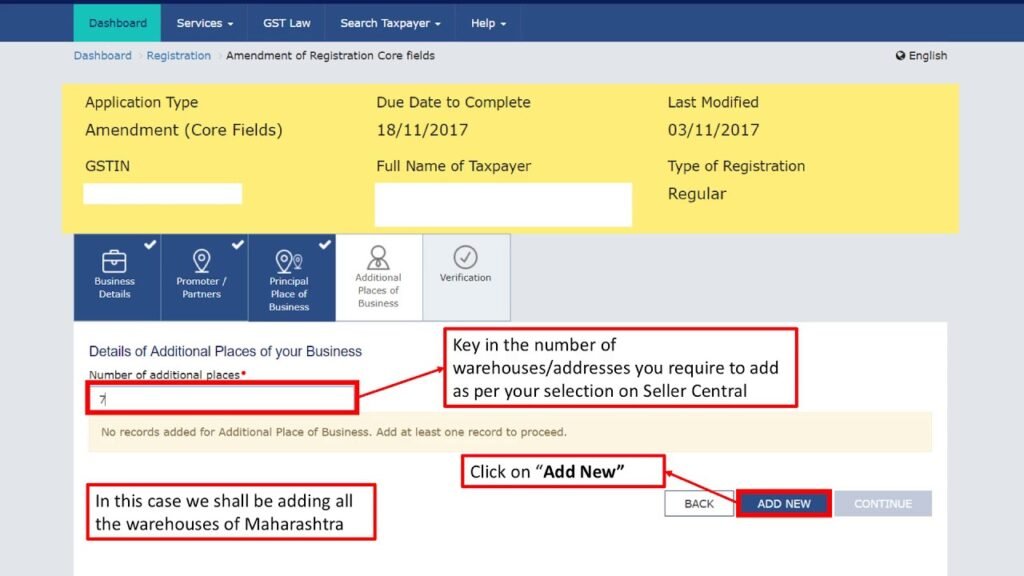Goods and Services Tax (GST) is a significant tax system in India. It helps to collect tax on goods and services at every stage of sale. MSMEs selling products or providing services must register under GST. Many companies have been found in many places, such as warehouses, offices, and stores in different cities. In these situations, they must notify the government of these locations. This is where the idea of Additional Place of Business (APOB) is used.
In this article, we will learn what APOB is, why a business requires it, and the regulations associated with it under GST.
Also read: Questions To Ask Before Taking Out A Bad Credit Business Loan!
What is the Additional Place of Business (APOB) in GST?
Place of business, under GST, refers to any place from which an MSME business conducts its operations. This includes the following:
- The main office (also called the principal place of business).
- Any other places where business activities take place (referred to as Additional Place of Business or APOB).
If a business has multiple locations within the same state or different states, then all the locations need to be registered under GST. The head office or main office is the main location, and the other offices are referred to as APOB. This is to enable proper tax realization and compliance with GST regulations.
Why Businesses Need to Register Multiple Locations
Most MSMEs have more than one location. They can have several warehouses, branch offices, or retail outlets. Some of the important reasons why companies need to register their other places of business are as follows:
- Accurate Tax Compliance: If a company has various locations but fails to register them, it might incur legal consequences or fines. Registration of all locations ensures that accurate tax is being paid.
- Ease of Transportation: Registration of locations often helps in the easy transportation of goods from one location to another, as per the rules. When locations are registered, it becomes less easy to create multiple e-way bills and invoices.
- Improved Business Operations: A good number of companies often require multiple locations for normal operations. A company can have warehouses in several states if they are offering several services. When such multiple locations are registered, it makes their operations efficient.
- Avoiding Penalties: If a company has an unregistered premise, the GST department can charge fines or penalties. It is always advisable to register more premises in order to remain within the legal framework and follow the rules.
- Claiming Input Tax Credit (ITC): Companies can claim input tax credit on the tax they incur while making purchases. If a company has an unregistered premise, it might not be able to claim ITC.
Registering an Additional Place of Business (APOB) is also helpful for MSME business owners who require financial aid such as a business loan. It serves as evidence of the business’s existence and proprietorship, allowing lenders to believe and obtain the approval of a loan.
Also read: best-loan-brokers-for-your-financial-needs
Overview of GST Rules for Additional Place of Business (APOB)
1. How to Register APOB?
- At the time of registration for GST, the business needs to give information on all the locations of the business, including APOB.
- If an MSME wishes to include an APOB after obtaining GST registration, it can do so by making an amendment application on the GST portal.
- The MSME needs to provide proof of ownership or rental agreement for the new location.
2. Documents Required for APOB Registration
For registering an additional place of business, a company is required to submit the following documents:
- Proof of address (like a rental agreement, electricity bill, or receipt of property tax)
- Business registration certificate (wherever applicable)
- Authorization letter (in case the business is a partnership or company)
- Any other supporting documents that the GST authorities require.
3. GST Rules for Multiple States
- If the business is present in various states, it has to get individual GST registration in each state.
- Within one state, several places can be registered as APOB under a single GST registration.
- A company cannot utilize the GST registration of one state for another state. It has to register individually in each state where it is operating.
4. Compliance Requirements
- Companies have to maintain records of all transactions for every location.
- GST returns must contain information on sales and purchases from all registered locations.
- In case of any modification, like the closing of a location or the change to a different address, the company needs to update the GST portal within a set period.
Conclusion
It is necessary to understand the principle of Additional Place of Business (APOB) under GST for every business having multiple locations. Enrollment in all locations ensures tax law compliance, ease in conducting business, and correct input tax credit availing. Non-registration of APOB may lead to penalties and business inconvenience. Thus, companies must always keep their GST registration information updated and comply with the necessary steps for the addition or alteration of further places of business. In this way, they can guarantee compliance with the law and effective business administration under the GST regime.
NBFCs contribute significantly to financial support through MSME loan options, credit facilities, and other financial services. Compared to banks, NBFC loans come with easy eligibility criteria, flexibility in repayment, quick disbursement, etc. They also guide and support MSME business owners throughout the business loan process and help them get the required loan to take their business to the next level. Hence several MSMEs go for an NBFC Loan to grow their business.
